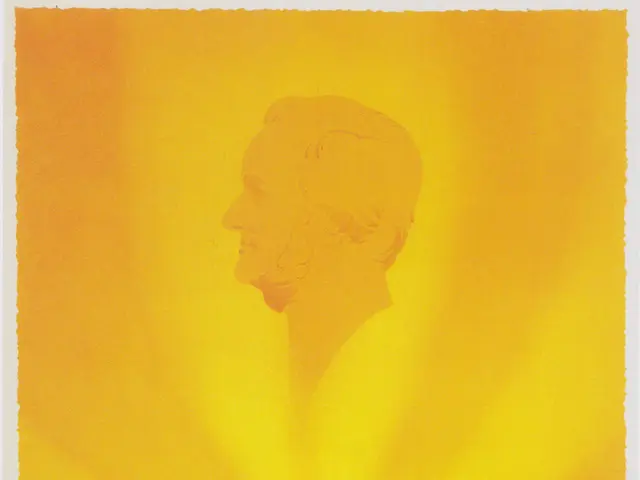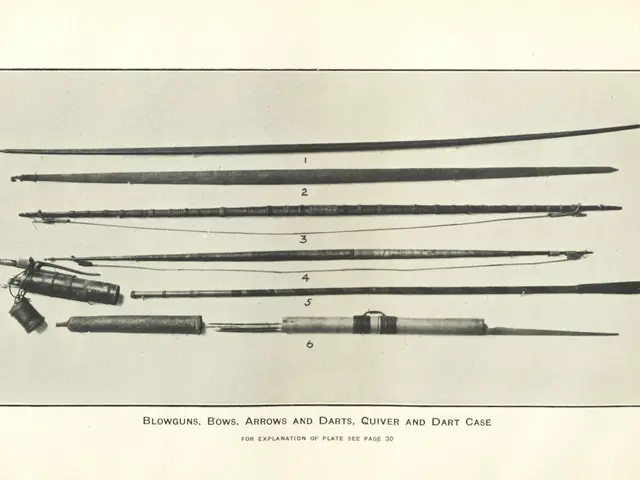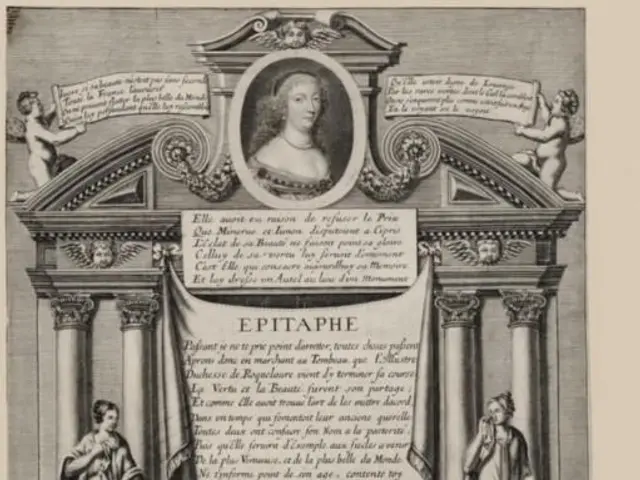Berlin honors sexologist Hirschfeld's legacy - Berlin bears resemblance to the renowned sexologist, Hirschfeld.
Lighting Up Berlin's Queer History: Remembering Magnus Hirschfeld
Let's take a trip down memory lane, travelers, as we delve into Berlin's vibrant and colorful past, focusing on a trailblazer who shone a beacon of hope during a time of darkness - Magnus Hirschfeld. This pioneering sexual scientist is being honored with a memorial bus stop in Berlin's Tiergarten, standing strong as a testament to the struggles and victories of the queer liberation movement.
Hirschfeld, a Berlin-born maverick, was a pioneer in the fight against homosexual discrimination. In 1897, he set up the Scientific-Humanitarian Committee, an organization that fiercely battled the criminalization of same-sex relationships and championed for public enlightenment on this matter[1].
The Nazis, unfortunately, were not fans of Hirschfeld's progressive ideas. They destroyed his Institute for Sexual Science in 1933, closing its doors forever. Hirschfeld, himself a homosexual, fled to France before the Nazis could get their hands on him. On May 14, 1935, he took his last breath in Nice[2].
The memorial bus stop, running for about six weeks, stands as a tribute to Hirschfeld and his band of revolutionaries. This site will celebrate the life and work of this sexual revolutionary and his companions[3]. On Magnus Hirschfeld Day, a new queer historical city map titled "Magnus Hirschfeld - Stars of his Queer Berlin" and an audio walk about Hirschfeld will be unveiled. To add some extra sparkle to the occasion, a festive event is planned at the French Embassy with the title "Magnus Hirschfeld - Stars of his Queer Berlin".
Magnus Hirschfeld was a German doctor who made waves in the early 20th century as an advocate for gay rights. Born on May 14, 1868, in Kolberg, Prussia (now Kołobrzeg, Poland), Hirschfeld was a proponent of scientific understanding and tolerance for sexual minorities. He was a prominent figure in the fight against discrimination of homosexuals, advocating extensively through research, activism, and writings[1][2][4].
So, if you're in Berlin, head over to the House of World Cultures and check out the memorial bus stop. It's a small step, yet a significant reminder of the incredible journey that started with Hirschfeld and the queer liberation movement in Berlin[3].
- Berlin
- Magnus Hirschfeld
- Memorial Bus Stop
- Homosexual Rights
- Advocacy and Research
- QCEID (Queer Cultural Experience in Berlin)
[1] hirschfeld-edition.de/index.php?id=10&L=1[2] encyclopedia.ushmm.org/content/en/article/hirschfeld-magnus[3] senat.berlin.de/sen/de/politik/arbeitsbereiche/soziales/tumultusgesetz/jahrestag-magnus-hirschfeld-tag.html[4] gayberlin.de/en/magdeburg/magdeburg-milestone-in-german-lgbtq-history/
- The memorial bus stop in Berlin's Tiergarten honors Magnus Hirschfeld, a Berlin-born pioneer who advocated for homosexual rights and fought against discrimination.
- If you're interested in fashion-and-beauty, books, social-media, entertainment, celebrities, pop-culture, sci-fi-and-fantasy, or lifestyle, don't forget to explore the rich offerings Berlin has to offer while you're there, including the House of World Cultures that houses the Magnus Hirschfeld memorial bus stop.
- Magnus Hirschfeld, a proponent of scientific understanding and tolerance for sexual minorities, set up the Scientific-Humanitarian Committee in 1897 to battle against the criminalization of same-sex relationships and champion public enlightenment on this matter.
- To fully immerse yourself in the queer cultural experience in Berlin (QCEID), plan your visit to coincide with Magnus Hirschfeld Day, when a new queer historical city map titled "Magnus Hirschfeld - Stars of his Queer Berlin" and an audio walk about Hirschfeld will be unveiled.








